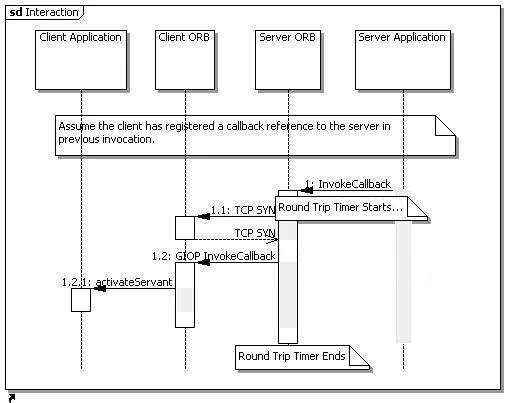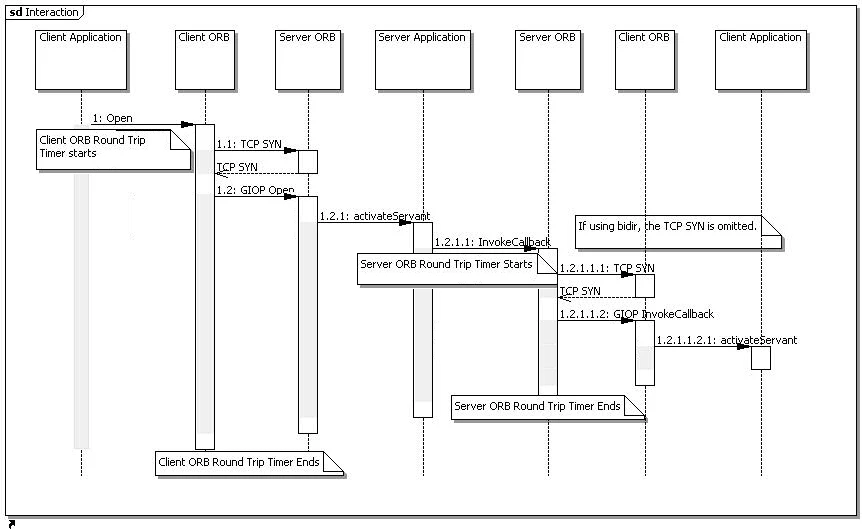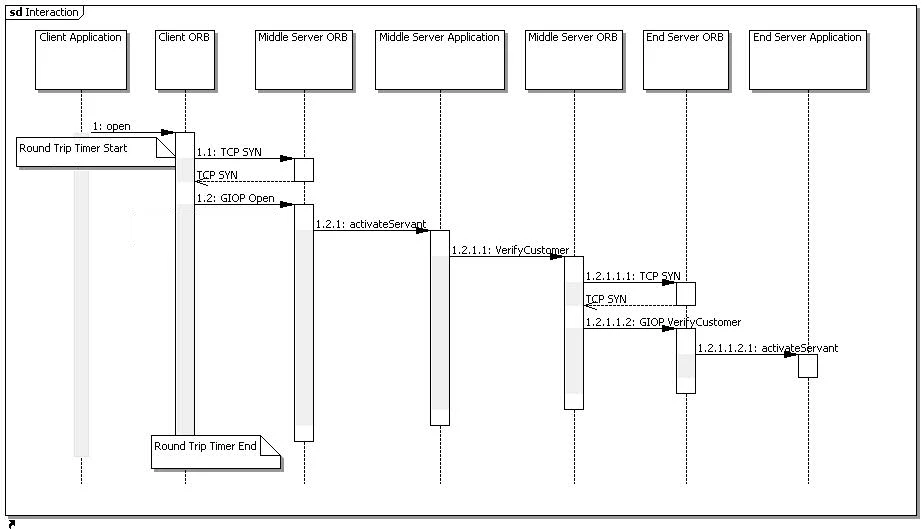Problem:
- Product Name: VisiBroker
- Product Version: 7.0 and later
- Product Component: QoS Timeout
When the programmer/developer is developing a CORBA application, it is reduced to a series of APIs invocation. It is not clear to the developers when the client ORB starts and expire the Quality of Service (QoS) Relative Roundtrip Timeout (RTT) timer.
Resolution:
1. Client Server Scenario
The round trip timer is started when VisiBroker client ORB establishes the connection to the Server and then writes into the socket. The client ORB must read the complete GIOP reply from the socket before the round trip timer expires. Otherwise, a CORBA.TIMEOUT exception will be thrown to the Client application.
This is an example of the code snippet for the client application:
2. Server invokes Callback Object
clientHander.invokeCallback();
3. Client invokes Server which callback the client

This is an example of the code snippet for the Client Application:
Bank.Account account = accountManager.open(); <- block until the server has completed invokeCallback.
This is an example of the code snippet for the servant implementation in the Server:
void open(String name, ClientHandler clientHandler){
clientHandler.invokeCallback();
}
4. 3 Tier Architecture
#VisiBroker
#RelativeRoundTripTimeout
#QOS
#timeout
#Security







